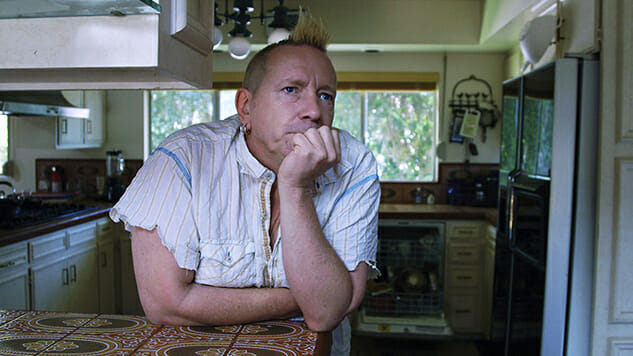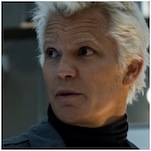The Public Image is Rotten
(2017 Tribeca Film Festival Review)
Photo: Tribeca Film Festival
At one point during the John Lydon/Johnny Rotten documentary The Public Image is Rotten, Lydon is in an interview with a music journalist. He’s asked about making an innovative sound for his latest Public Image Ltd album, and he replies that his words are original, his ideas are original, so why wouldn’t he have original music backing it up? Director Tabbert Fiiller had me coming back to that question as the movie continued: Your star is original, his story is original, so why wouldn’t you make an original music documentary for him?
The story of Johnny Rotten’s rise as the lead singer of the Sex Pistols, then his stumble and resurgence as the lead singer of PiL, was never the punk story its star seemingly deserves. Instead, his story is about the transformation of a notoriously riotous kid into an adult craving stability: A man once calling for “Anarchy in the U.K.” now seems ready to settle for monarchy. He’s simply a nice guy who went looking for a family in a profession and genre that fought him at every step. As such, The Public Image is Rotten’s talking heads and archival footage are juxtaposed with the kind of bleak, age-emphasizing reality of a VH1 Behind the Music hour—and generate the same level of excitement.
It’s all been seen and done before. Lydon’s bandmates acquire fame, get burned out or bold ideas, and abandon him, while the Sex Pistols manager, Malcolm McLaren, retains contractual rights to the Pistols’ output, and even to the name “Johnny Rotten.” Meanwhile, after these setbacks and Lydon’s second chance in post-punk, PiL’s lineup churned constantly over the course of its existence, meaning Lydon’s need for trust and truth was always disappointed.
This need, we find, stems from a childhood bout with meningitis that left Lydon comatose for months. When he awoke, he had no memories. Couldn’t speak, walk, use a spoon. Didn’t know his mother, father or little brothers—he just had to live with these strangers claiming to be his family. It took him four years to regain his memories and the experience left him permanently jaded towards others trying to tell him who or what he was. Self-discovery, for Lydon, must necessarily come in an environment of complete faith.
-

-

-

-

-

-

-

-

-

-

-

-

-

-

-

-

-

-

-

-

-

-

-

-

-

-

-

-

-

-

-

-

-

-

-

-

-

-

-

-








































